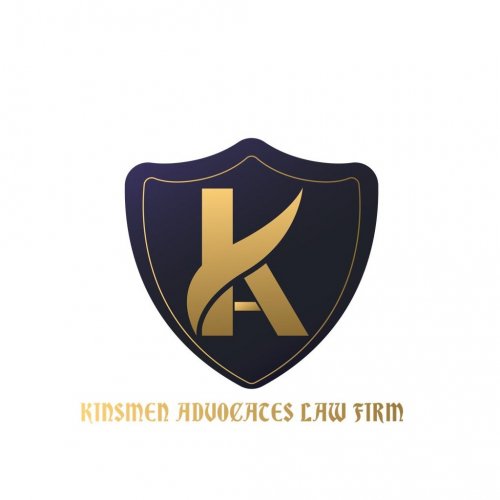Best Debt & Collection Lawyers in Buea
Share your needs with us, get contacted by law firms.
Free. Takes 2 min.
List of the best lawyers in Buea, Cameroon
About Debt & Collection Law in Buea, Cameroon
Debt and Collection law in Buea, a city in Cameroon, is partially regulated by Cameroon’s OHADA law (Organization for the Harmonization of Business Law in Africa). It provides guidance on issues related to financial transactions, commercial businesses, and related disputes. In this system, creditors have the right to recover their debts, while debtors are given legal protection from abusive practices. It's important to note that Buea, like many other African jurisdictions, may have traditional or local laws that supplement or intersect with statutory law.
Why You May Need a Lawyer
You may need legal advice if you're struggling with mounting debts, dealing with aggressive debt collectors, trying to understand your legal obligations and rights as a debtor, or considering declaring bankruptcy. A lawyer can provide guidance on how to navigate complex legislation, negotiate with creditors, and protect your rights. In addition, if you are a creditor, an attorney can help you follow legal procedures to recover your money while respecting debtor's rights.
Local Laws Overview
Under the OHADA law, creditors have a range of options to recover debts, including seizure and sale of debtor’s assets. However, debtors also have rights to ensure fair treatment. Creditors must provide ample notice to debtors before action is taken and use legal avenues for debt recovery. It's illegal to use harassment, threats, or intimidation against a debtor. Debtors are also entitled to preserve a minimum level of assets, known as unseizable assets, to maintain a basic standard of living. In Buea, these protections may be supplemented with local traditional laws, ensuring additional safeguards for debtors.
Frequently Asked Questions
What is OHADA?
OHADA stands for the Organization for the Harmonization of Business Law in Africa. It's a system of business laws and implementing institutions adopted by sixteen West and Central African countries, including Cameroon.
What happens if I cannot repay my debt?
If you cannot repay your debt, your creditors have the right to recover their money. This can include the seizure and sale of your assets. However, there are laws to protect debtors from abusive practices, and you are allowed to retain a certain level of assets to ensure a basic standard of living.
Can I negotiate with my creditors?
Yes, you can and should negotiate with your creditors if you have difficulties repaying your debt. A lawyer can help you do this in a structured and legally sound manner.
What can I do if a creditor is harassing me?
If a creditor or collection agency is using intimidation or harassment, you can report them to the local authorities. Harassment and intimidation are considered illegal practices.
Can a creditor seize any type of asset?
Generally, there are restrictions on what kind of assets can be seized. Certain assets deemed necessary for living or working are usually protected. This varies, so it's important to consult with a lawyer.
Additional Resources
A reliable source of legislation in Cameroon is the OHADA website which provides information on unified business laws. Another resource is the National Commission for Human Rights and Freedoms (NCHRF) which provides general human rights awareness, and might assist in cases of creditor harassment or intimidation. Local law firms with a specialty in debt and collection law can also be of help.
Next Steps
If you are in need of legal advice, the first step should be to consult with a legal practitioner familiar with debt and collection laws in Buea, Cameroon. They can provide guidance according to your specific circumstances, and help protect your rights whether you're a debtor or a creditor. You may also want to consult local NGO's and community organizations that provide free or low-cost legal advice.
Lawzana helps you find the best lawyers and law firms in Buea through a curated and pre-screened list of qualified legal professionals. Our platform offers rankings and detailed profiles of attorneys and law firms, allowing you to compare based on practice areas, including Debt & Collection, experience, and client feedback.
Each profile includes a description of the firm's areas of practice, client reviews, team members and partners, year of establishment, spoken languages, office locations, contact information, social media presence, and any published articles or resources. Most firms on our platform speak English and are experienced in both local and international legal matters.
Get a quote from top-rated law firms in Buea, Cameroon — quickly, securely, and without unnecessary hassle.
Disclaimer:
The information provided on this page is for general informational purposes only and does not constitute legal advice. While we strive to ensure the accuracy and relevance of the content, legal information may change over time, and interpretations of the law can vary. You should always consult with a qualified legal professional for advice specific to your situation.
We disclaim all liability for actions taken or not taken based on the content of this page. If you believe any information is incorrect or outdated, please contact us, and we will review and update it where appropriate.








